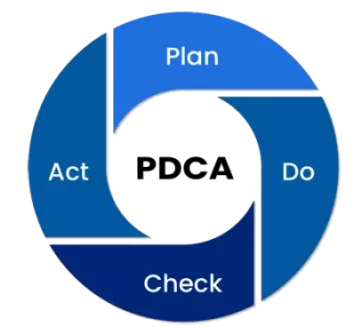Services Provided
At Kaizen247, we provide a range of consultancy and advisory services for the motor trade.
Kaizen Explained
Kaizen 247 wholly believes in the transformation that the Toyota Production System bought about to the motor industry. We take time now to explain the pillars of Kaizen adapted for everyday motor trade workshops.


Delivering customer service
As a reactive service, a large percentage of workshop tasks are unplanned. With our evolution in aftercare, we desire to build a charter for delivering the very best customer service we possibly can.
The importance of standardising the operation is never more important as you scale a business and seek consistency.


Toyota Production System
The most successful exponents of this best practice are Toyota Motor Corporation, who have developed something they call the Toyota Production System, commonly abbreviated as TPS, and all its proven methodologies, as a headline overview, TPS covers:
Kaizen
Continuous Improvement, through small steps.
Good – Work
Lean
Reduction in stock, to not unnecessarily carry over stock inventory. Working with suppliers to follow the JIT process
Muda
The eradication of waste.
Wasted time, effort, energy, manpower, resources, etc
Jidoka
Not afraid to STOP the process if something doesn’t look right. Then check see, take advice and only carry on production if completely happy
Takt time
The time allocated for the complete task. i.e. 42 minutes to change brake pads. Everyone follows the defined process and works one way, before seeking a change.
Just in time
(JIT) is the connection between production and supply. To have the parts delivered when you need them, in the quantity required, in small batches. If something is wrong with #2 in production, you don’t have 98 more that are made wrong too.
SOP’s
Standardised Operating Procedures are in place for every element of production. Broken down into the step-by-step process followed, including time, tools and methodology. ie to change front brake pads the SOP will include PPE, tools, working practices, testing, quality control and whole time.
Pull system
Building product based on Customer demand, i.e. you want a red one we will build you a red one. As opposed to PUSH whereby products are built en-masse and then sold.
If you want a black one, you’ll have to wait 3 months.
Andon cord
Pulling a cable to alert colleagues that there is something wrong and you want their assistance. Encouraged by TPS and seen as excellent quality control techniques
PDCA
Plan Do Check Act is a proven process whereby teams come together to problem-solve in a highly visual kinesthetic manner.
Standardised Operating Procedures
Where possible every element of your work should be replicable, using common tools, following a defined step through process, and continually checked for compliance, we call this Standardised Operating Procedures or SOP’s.
In a modern car dealership/IMT
Kaizen
Empowering all staff members to offer solutions to problems they face on a daily basis. Encouraging lateral thinking and be receptive to ideas generated from the floor. Recognizing and rewarding improvements form all sectors of the business.
Lean
Looking at where there is over stock, consumables, tyres, oil, print stationery etc. and pushing for reduction to ease pressure on cash tied up in unnecessary high levels of stock.
Muda
Challenge yourself to reduce waste in all forms
Repeated tasks, leaving lights on, two suppliers for the same thing. Continual check of overheads to make sure you have the best deal everywhere
Jidoka
When everyone around you tells you something is wrong, staff dissatisfaction, negative Customer feedback, then stop, check and seek improvement. Continue to measure and make best practice consistent.
Takt time
Book time for jobs with the usual allowance for real world seized bolts +- need to be adhered to and measured.
Just in time
(JIT) in our world is working with suppliers to ensure we have the right part delivered at the right time. Avoiding warehouses full of stock that suppliers should hold and release to Dealers when they need it. JIT is pre picking your parts for known service work. JIT is having jobs lines up with cars in known locations ready for technical staff to proceed without unnecessary delays. Every minute saved will soon show in department profitability
SOP’s
Standardised Operating Procedures should be written for every common task that is undertaken. Including who does what, when, with specific list of tools/PPE. Only once you standardise the operation can you begin to improve it.
Pull system
Service departments are notorious for being reactive, with planned maintenance, predictive mileage you can begin to take control of servicing in a proactive way and work smarter with Customers to provide a level of service that is not always reactive, but often disappointing
Andon cord
Empowering all staff to have the will, desire and confidence to raise concerns about any aspect of their work, but particularly quality. If something is wrong, everyone should raise the alarm and seek improvement, do not let the Customer be the one to raise it. Indeed, if it becomes evident that staff do not raise concerns in the workplace this can identify lack if interest or care about their work. Often problem solving at root cause is a fraction of the price once it reaches Customer level.
PDCA
Plan Do Check Act is a practice whereby staff are engaged in problem solving, using their own initiative and through involvement we know this leads to true buy-in.
An event, held in works time, to discuss the problems that can be solved (i.e. not economic or environmental) and generate ideas for local fixes without requiring capital expenditure,


